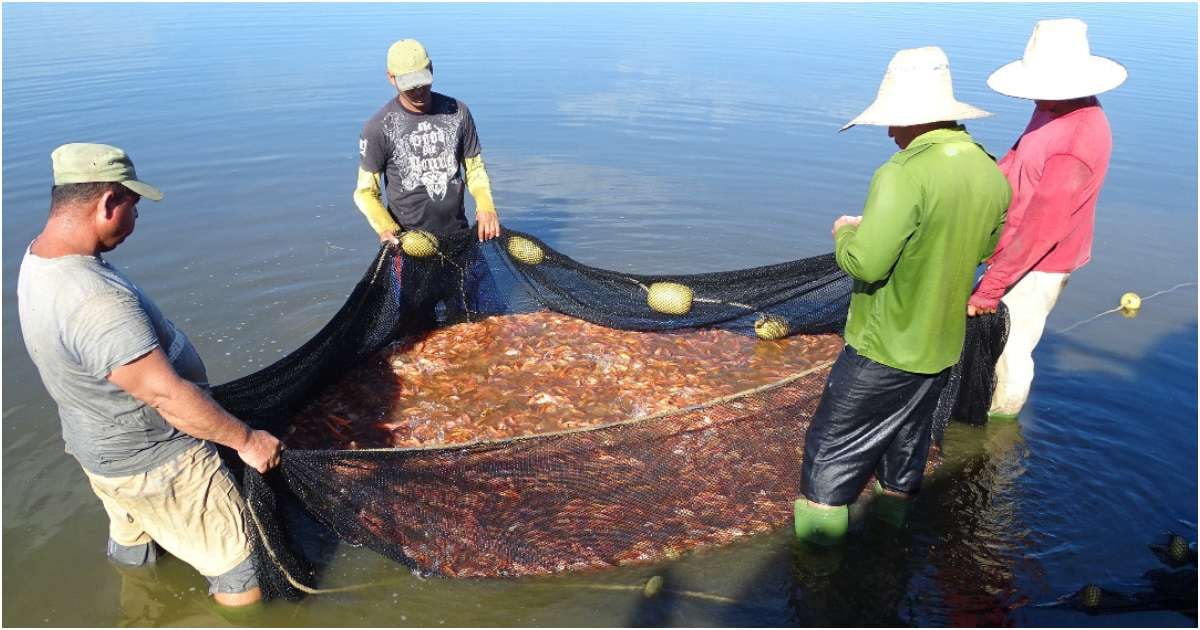In 2024, Sancti Spíritus contributed nearly 30% of Cuba's freshwater fish, exceeding 3,000 tons. Despite this, fish remains a rarity in local retail outlets and on residents' dining tables, a situation mirrored across the nation. While the public wonders why fish isn't regularly available or quickly disappears upon arrival, officials maintain that distribution occurs, but the overwhelming demand quickly depletes supplies.
“In the past, citizens could purchase eggs, chicken, pork, dairy, and other goods at state stores, items that are now either scarce or priced out of reach for many,” admitted Erich Pérez Márquez, director of the Sancti Spíritus Fishing Company (Pescaspir), as quoted by the state-run newspaper Granma. However, Pérez Márquez emphasized that Pescaspir's offerings are sold through 15 permanent fish markets and a mobile unit, and "they sell out rapidly because people buy everything we release and more. This creates the impression of insufficient supply."
In 2024, Pescaspir processed approximately 2,108 tons, which is 450 tons more than in 2023. Over the past four years, investments in the fishing industry have surpassed 10 million pesos, allowing for diversification into nearly 20 products like croquettes, burgers, ground fish, and sausages, aiming to reach more families.
However, Granma acknowledged that a portion of this production is sent to other provinces as part of a "national balance" to meet the country's high food demand. The newspaper also highlighted that illegal fishing reduces product availability. Despite operations to curb this activity and increased surveillance around reservoirs, these illegal catches, deemed theft, persistently raise prices in the informal market.
“Even if the illegally caught fish ends up in a family's pot, it’s not the same. Firstly, this hidden and unlawful practice affects the company's production, processing, and diversification levels. Secondly: What price does the fish reach the buyer's pocket? It's beyond discussion!” the article stated, sidestepping the broader food crisis that has led many Cubans to seek alternative ways to meet basic food needs.
On the other hand, Pescaspir has a line of exportable products, though it hasn't yet exported "all that is potentially possible." The distribution model frustrates many. “Eating fish in Cuba is a privilege for a few, on an island surrounded by the sea. In Guantánamo, some eat thanks to sellers from Caimanera, though prices are not too high, few can afford it,” commented Marco on the publication.
Challenges Facing Cuba's Fishing Industry
In 2023, the government stated, "Cuba is a country surrounded by the sea, but the waters don't have the fish levels needed to meet the population's demand." Similar to housing construction, sugar production, agriculture, and other sectors, the fishing industry fails to meet its production goals due to various factors like resource shortages, energy, boats, equipment, and illegal fishing. The government prioritizes exports and tourism over domestic consumption.
Suggestions in response to the Granma report included promoting fish farming in cages in rivers or streams, using freshwater tanks in rural areas, or adopting successful practices from countries like Brazil or China.
Innovative Solutions and Future Prospects
Local fishermen in Sancti Spíritus complain about insufficient fingerling stocking, but the company asserts that it has exceeded its 2030 target with over 40 million fingerlings stocked, allowing for self-sufficiency, support to other provinces, and increased survival rates. Despite ongoing stocking, reports in November 2022 indicated fewer species, especially at Zaza reservoir, and that the aquaculture sector in Sancti Spíritus was not meeting its fish capture targets in local reservoirs.
Pescaspir is fostering partnerships with agricultural producers to use waste in animal feed production. A joint strategy is also being explored between the two local fishing companies (freshwater and saltwater) and a state-owned microenterprise to supply fish markets more effectively.
From the central government, Vice President Salvador Valdés Mesa urged finding export variants to generate revenue and improve sector conditions. Yet, on the streets, people continue to await fish more than new plans. "It seems we have a decorative sea," wrote Pedro Antonio. "We can revive this depressed sector, contribute to food sovereignty, and even export much more (...), but we need to break paradigms, bolster science, change the mindset, and abandon excuses and fears."
FAQs on Fish Supply Challenges in Cuba
Why is fish scarce in Sancti Spíritus despite high production levels?
The scarcity is attributed to high demand that quickly depletes available supplies. Additionally, some production is allocated to other provinces as part of a national distribution balance.
What impact does illegal fishing have on the market?
Illegal fishing reduces the availability of fish, affecting production and processing levels and driving up prices in the informal market.
Are there plans to improve fish availability for local consumers?
Efforts include partnerships with agricultural producers, exploring export opportunities, and diversifying fish products to increase local supply.
